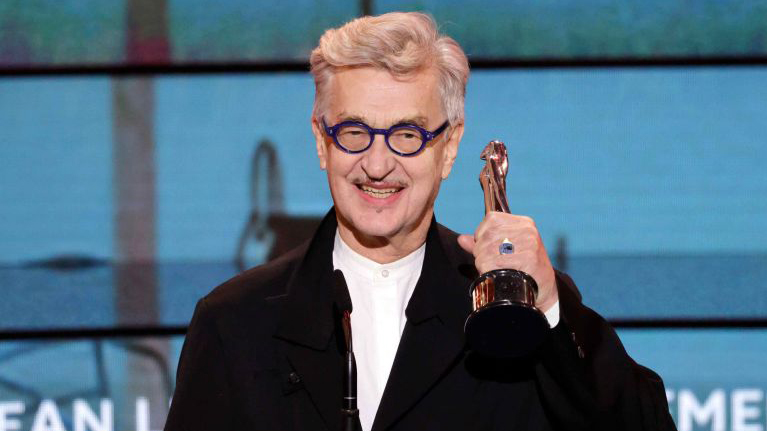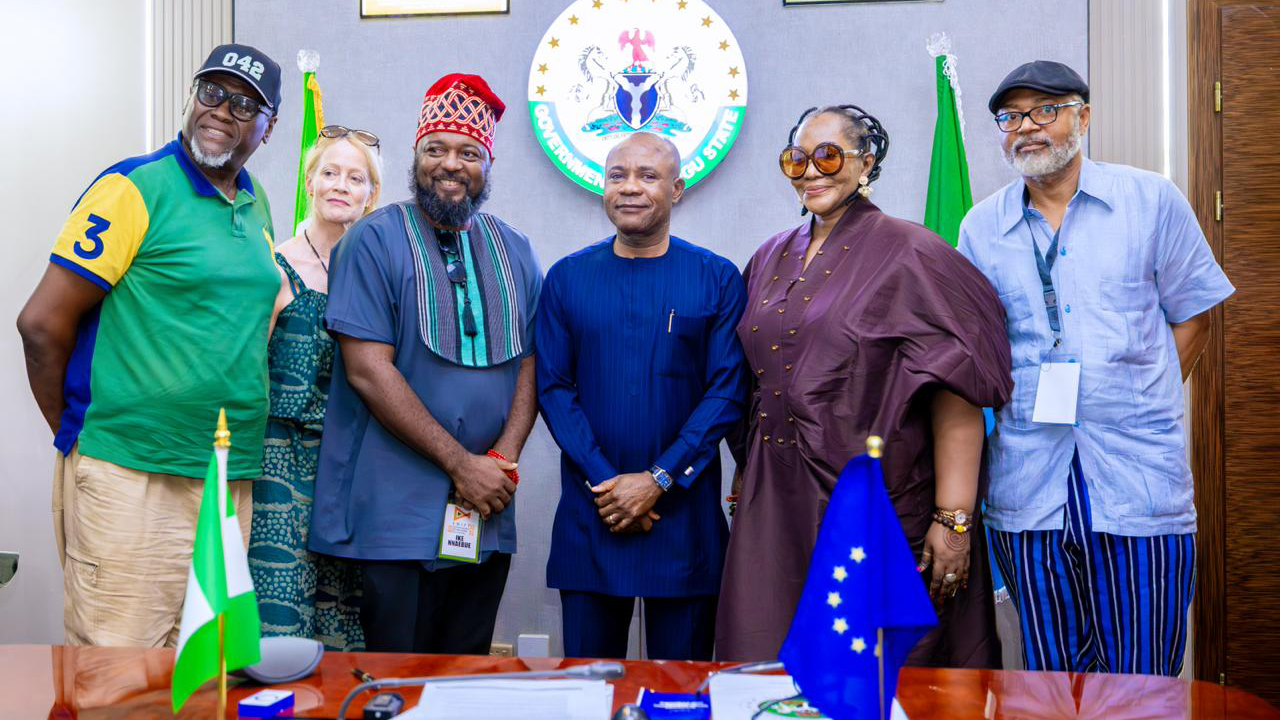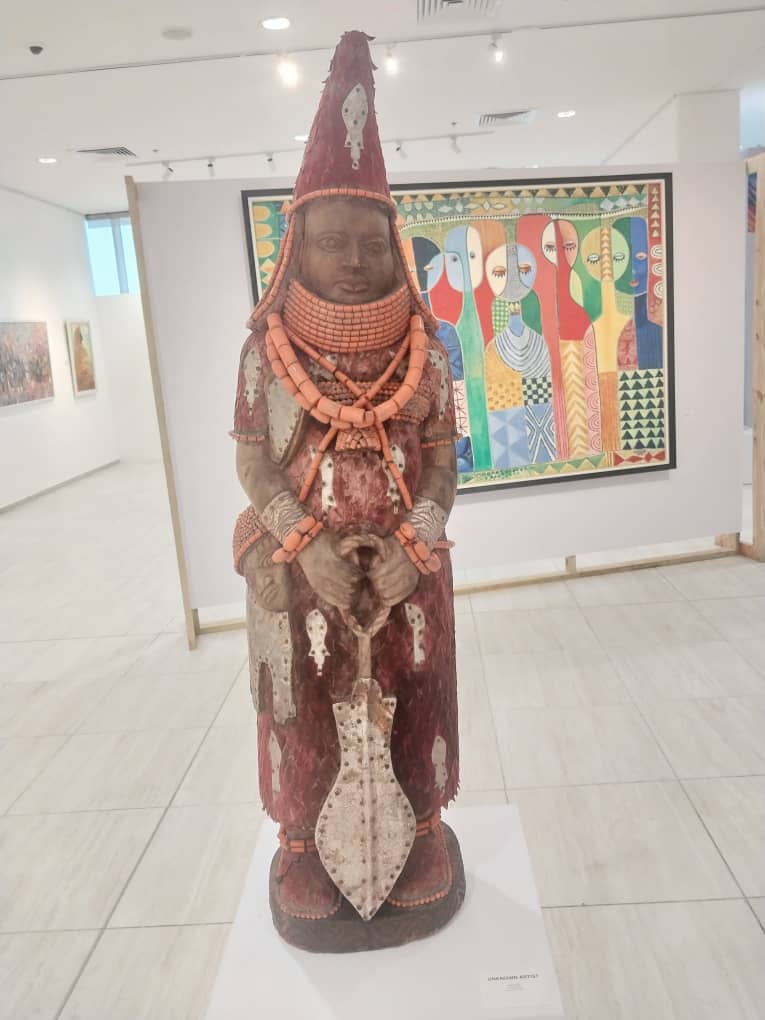
In this short—but informative—conversation, Ramond A. Anyiam-Osigwe (a Brother to the Founder) explains, to J.K. Obatala, the inner working of the African Movie Academy Awards (AMAA) ceremony.
Conducted at the Safron Hotel, Ikeja, it provides insight into Management’s thinking, in the wake of Peace Anyiam-Osigwe’s departure, as well as hints of a strategy for moving forward.
First of all, congratulations on a successful Awards Ceremony. What challenges did you face, in the wake of Peace Anyiam-Osigwe’s demise?
The main concern, was how to let the world know that AMAA would remain and grow, from the Foundation that she has established. To give confidence, both to the local and international community, that the passing of the Founder doesn’t mean the end of a phenomenal brand, like the African Movie Academy Awards (AMAA).
How did you, as family, process the loss?
You’ll find that each loss is private to every family—and they have their own way of processing it. For us, we knew that the proper thing to do, was to ensure that what she loved doesn’t die with her.
She loved AMAA. She loved creativity. She started at a very young age. At 15, 16 she
published her first magazine article in the U.K. So, we knew what we needed to do.
We also knew that AMAA was a credible platform that has been embraced by African filmmakers on the continent and in the Diaspora. And also by those who love African cinema. It provided an alternative platform—which was something that was lacking.
So, AMAA has been filling a void, and will continue to do that. That’s why, in this year’s “Welcoming Address,” we tried to share the fact that AMAA is African cinema. You can make it as big as you want, by embracing the philosophy.
Are you contemplating any changes next year, from this year?
Right now, no major structural changes are planned. But we will look at the possibility of bringing in certain developments, in line with the trajectory of the programme, going forward.
This year’s event, was a combination tribute to celebrate the life of Peace and the legacy that is in motion, and also to celebrate what AMAA does—which is promote African film, and creativity.
If I don’t make this clear, you’ll think, “Oh Why didn’t we have more of the tribute, as opposed to a traditional awards ceremony?” But it was a fusion of both—substantially, an “awards ceremony,” with a sprinkling of “tribute”.
According to the feedback we’re getting, it was quite well received. It is important that we did it. We were successful; and the reaction was quite positive.
How many staff do you employ?
Operationally, we have a Management team in place. I can’t speak of numbers now. But when the project, the event is about to take off, we increase our personnel—because we work with a lot of consultants, who handle different aspects of the operation.
We have, for example, a team that handles the artistic aspect and a team that handles the technical side. Most of them, are people that we’ve worked with, historically. But in order to manage challenges as they come up, we use consultants on an “on demand basis”.
We confer with most of them, throughout the year. That’s because AMAA is actually a roadmap—and not just an event….
What do you mean, when you say, “AMAA is a roadmap”?
A roadmap, in the sense that during the course of the year, AMAA participates with a number of other film festivals, in collaboration with the host city, Lagos.
In the past, AMAA has gone to events like the Cannes Film Festival, in France, with the Lagos State Government. The Lagos State Government, and AMAA, had a pavilion to showcase African film.
We have also gone to the Toronto Film Festival, on a number of occasions. A lot, of course, depends on time, budget and the availability of funding.
It is observed that some stars are regulars, while others appear sporadically, or not at all. Who decides which stars will participate in AMAA?
It’s best to say that AMAA is an open platform. There are no restrictions, on who can attend. We have a database of most actors, who’ve attended, over the years. Invitations do go out.
However, AMAA doesn’t insist on anyone’s attendance. Those who are able and willing to attend, and enjoy an evening of entertainment, are welcome. We’re not discriminatory. I think that’s what I’m trying to share, here.
AMAA likes to benchmark its activities, based on best practices. We wouldn’t do anything to mar or taint the brand—which we cherish.
What did you do to get AMAA off the ground?
Well, we’ve just concluded this year’s event. When it’s over, we usually have a retreat to review all that has occurred, in terms of the event itself. To see where the lapses have been. To see how we can improve on it.
And then, we use our findings to prepare a plan, for the future: How do we grow the brand? How do we reach out to businesses and institutions, that we feel would benefit from collaboration with AMAA?
Who are some of those organizations?
Most of the blue-chip organizations in Nigeria, such as Pepsi and Seven-Up, for example. We also have a number of the Luxury drink brands, that partner with us on the Red Carpet.
They are the standard organizations that would love a platform such as AMAA, to show case their products—given what AMAA represents.
We also look at organizations, which have an interest in demonstrating corporate social responsibility, by encouraging the arts and developing and nurturing creative talent—showcasing the fact that they are putting something back into society.
Being mindful, of course, that we are also in an emerging market economy. So, funding is never easy and it’s highly competitive. We also try to create relational awareness. So we do trips, where we have a dinner and invite some of the potential and actual international collaborators.
What, specifically, is the purpose of these trips?
We look at these international events, as opportunities to show what AMAA is doing tor African film—and to build bridges that, hopefully, would help nurture collaborative activities between, say, African and African American filmmakers, for example.
Since the inception of AMAA, there has been increased collaboration with international filmmakers. What a lot of people do not know, for instance, is that many prominent stars, have received support from AMAA.
In consultation with the Anyiam-Osigwe Foundation, the African Movie Academy Awards processed a number of their visas and passports, permitting them to travel to the U.S.A.
It’s documented. So, I’m not telling you what is not in the public domain of the respective embassies. I can’t quote a figure, but I think it was close to 50 or 100 of them. They were taken, by AMAA, under the leadership of Peace. For many of them, it was their first visit, to the U.S.A.






